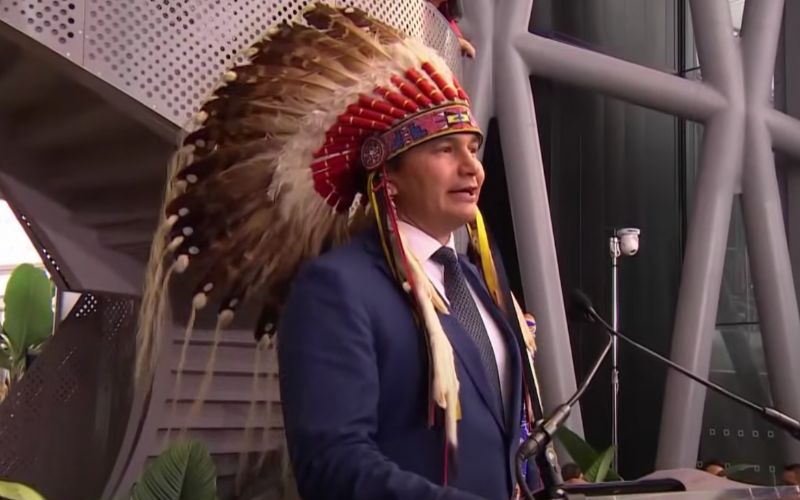
- Details
- By Kaili Berg
Kinew, a former broadcaster and university administrator, led the New Democratic Party (NDP) to victory on October 3rd and defeated the Progressive Conservatives, who have been in power for seven years. The NDP captured 34 of the 57 legislature seats on election night. Ten of those 34 members of the legislative assembly are Indigenous.
Kinew’s 15-member cabinet, for the first time ever, includes two First Nation women: Nahanni Fontaine (Sagkeeng Anishinaabe), the party’s house leader who is serving her third term and is now the minister of families; and Bernadette Smith (Anishinaabe/Metis), who is ministering of housing, addiction, and homelessness.
Kinew will hold the title of Minister of Indigenous Reconciliation in addition to the title of Minister of Intergovernmental Affairs and International Relations. He notes the important message this sends to leaders of Indigenous nations in Manitoba.
“Today I am appointing myself the minister responsible for Indigenous reconciliation,” Kniew said in a speech at his official swearing-in ceremony on October 18th, during which he wore a traditional headdress. “The message I am sending is simple and it is to the leaders of Indigenous governments across Manitoba. Our government will recognize you for what you are, the leaders of governments. Governments just like the other orders of government in Manitoba, Canada, and across North America.”
The ceremony opened with a prayer from the Chief of the Red Sucker Lake First Nation and the lighting of the Qulliq, a traditional oil lamp used by the Inuit. Following that was a performance of the Red River jig, a traditional Metis dance performed by a fiddle tune from the Norman Chief Memorial Dancers, and land acknowledgment given by the Chief of Long Plain First Nation, and speeches from Indigenous leaders.
Among Kinew’s campaign promises include reopening three hospital emergency departments closed by the Tories, temporarily suspending fuel tax to help people with inflation, and ending chronic homelessness within eight years.
“The expectations are very high, but I feel that we can meet them by working with you, the people of Manitoba,” Kinew said.
He has also pledged to search the Prairie Green Landfill for the remains of two Indigenous women believed to have been taken there after being killed.
Kinew noted the cabinet will continue to meet to shape the new government’s priorities ahead of the next legislative session in November.
“Today, I am wearing a headdress, and tomorrow, I will be chairing a cabinet meeting at the Manitoba legislature,” he said. “Through it all, I will be working alongside our government team to fix healthcare, lower costs for you, and to make you proud of Manitoba.”
More Stories Like This
Native News Weekly (August 25, 2024): D.C. BriefsUS Presidents in Their Own Words Concerning American Indians
Native News Weekly (January 18, 2026): D.C. Briefs
Federal Judge Orders ICE to Halt Use of Pepper Spray, Arrests of Peaceful Protesters in Twin Cities
Tunica-Biloxi Cultural Leader John D. Barbry Walks On
Help us defend tribal sovereignty.
At Native News Online, our mission is rooted in telling the stories that strengthen sovereignty and uplift Indigenous voices — not just at year’s end, but every single day.
Because of your generosity last year, we were able to keep our reporters on the ground in tribal communities, at national gatherings and in the halls of Congress — covering the issues that matter most to Indian Country: sovereignty, culture, education, health and economic opportunity.
That support sustained us through a tough year in 2025. Now, as we look to the year ahead, we need your help right now to ensure warrior journalism remains strong — reporting that defends tribal sovereignty, amplifies Native truth, and holds power accountable.
 The stakes couldn't be higher. Your support keeps Native voices heard, Native stories told and Native sovereignty defended.
The stakes couldn't be higher. Your support keeps Native voices heard, Native stories told and Native sovereignty defended.
Stand with Warrior Journalism today.
Levi Rickert (Potawatomi), Editor & Publisher


